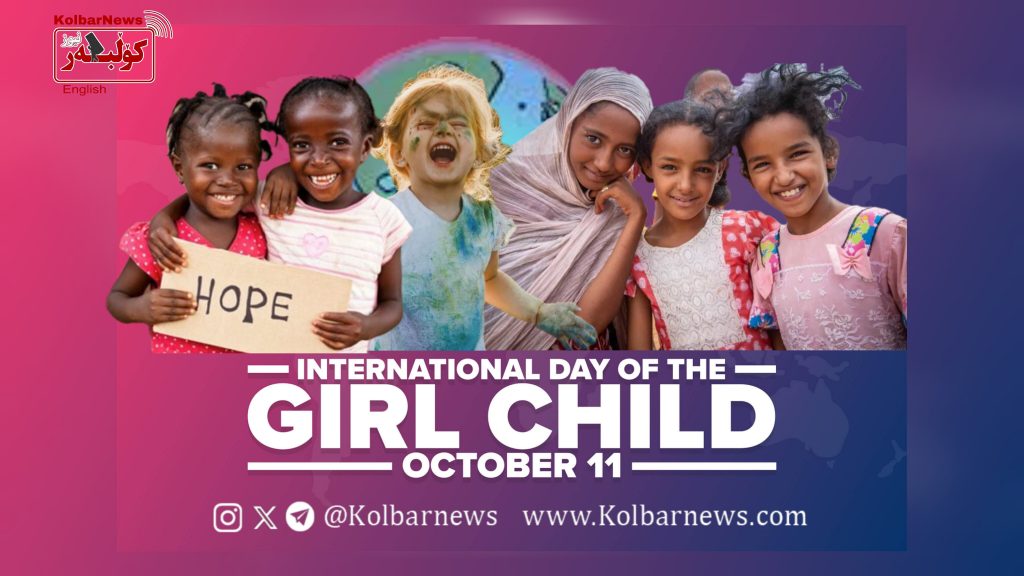
Friday, October 11, marks the International Day of the Girl Child. According to the latest research by UNICEF across 120 countries, one in every eight girls globally experiences severe sexual violence or abuse before the age of 18. An estimated 370 million girls and underage women worldwide have been victims of this phenomenon. UNICEF also notes that if we consider sexual violence, verbal abuse, or attacks carried out on the internet, one in five girls globally has been affected by these inhumane acts.
According to the UNICEF report, sexual violence against girls occurs with variations across all continents and in all cultures, with the number of affected individuals being particularly high in war-torn or crisis regions. The UNICEF statement does not cover the grave crimes committed against girls in conflict zones like Ukraine, Gaza, Lebanon, Yemen, and Sudan. Naturally, no precise statistics are available from these regions regarding the suffering imposed on young girls.
Based on information from the Palestinian Ministry of Health, as of October 10, the number of casualties from Israeli attacks on Gaza, excluding those buried under the rubble, has risen to 42,065, with 97,886 injured. Two-thirds of these victims are women and children, deliberately targeted under a racist policy. There is no exact figure for child casualties, as their numbers are often included alongside the women. The Biden administration, for the first time on March 1, released statistics on the victims of Israel’s assault on Gaza. According to Lloyd Austin, the U.S. Secretary of Defense, Israeli forces caused the deaths of more than 25,000 women and children in Gaza from October 7, 2023, until the stated date.
Heartbreaking reports have emerged about the manner of death of children and those who have lost one or both parents in Gaza. The number of orphaned children is estimated at 20,000. Some organizations aiding children in Gaza report this figure to be as high as 51,000 orphans.
In the Ukraine war, children, including girls, have also been victims, though their exact number is unknown. Most reports concern children who have been sent to Russia or Belarus by Russian authorities for “education.” There is no clear, independent information on whether these children were forcibly transferred or went willingly with their families. Besides the fatalities, war brings horrific experiences for young girls, such as witnessing the death of loved ones, destruction, deprivation of education, loss of affection, hunger, disease, and a bleak future.
In Iran, under the Islamic regime, young girls from impoverished families, those deprived of education, and child laborers face numerous physical and psychological hardships. The presence of reactionary, misogynistic Islamic laws and the patriarchal culture prevalent in society exacerbates the problems and sufferings of these girls, exposing them to human trafficking and drug gangs.
Young girls from poor and low-income families, even if not forced into the labor market, are often married off at a young age against their will due to family poverty. In addition to all these deprivations and injustices, under the Islamic regime, it is legal to marry girls as young as nine. Despite existing laws, parents can send nine-year-old and older girls to their husbands’ homes. Additionally, many marriages, especially among Iranian and Afghan girls, go unregistered, subjecting them to even greater hardships. Those young brides who become mothers face multifaceted challenges. According to Iran’s Civil Registry Organization, around 1,500 to 2,000 babies are born annually to mothers under the age of 15 in Iran. Such marriages, which impose shameful conditions on young girls, are considered child rape and a criminal act in many parts of the world, yet this crime is legal and widespread in the Islamic Republic today.
The fundamental oppression imposed on young girls is part of class oppression in bourgeois societies and should be viewed as a subset of the oppression of women. These oppressions are rooted in the capitalist system and can only be eradicated through its destruction. However, some of these oppressions and existing sufferings can be alleviated, and parts of women’s rights can be enforced through concerted efforts against capitalist states.
Achieving these rights is possible through the united struggle of all free and equality-seeking individuals, and we must strive to make this a reality.

